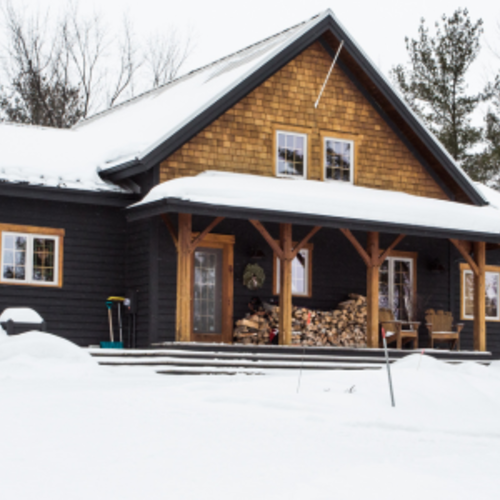Introduction to Home Insurance in Indiana
If you own a home, insurance isn’t just a formality—it’s peace of mind. For Indiana homeowners, having a reliable home insurance policy ensures protection against unpredictable weather, accidents, and the unexpected. Home insurance goes beyond just covering the basics; it safeguards your property, finances, and comfort. In Indiana, home insurance considerations might include unique weather patterns, regional risks, and different coverage needs, making it essential to choose a policy that fits both your home and lifestyle.
Key Components of Home Insurance Policies
A well-rounded home insurance policy generally covers several main areas: the dwelling, liability, and personal property. Dwelling coverage is perhaps the most critical part, as it protects the physical structure of your home. In Indiana, where unpredictable winter storms or severe weather can sometimes lead to property damage, having this coverage is essential. It includes repairs or rebuilds for your home’s walls, roof, floors, and other structural components.
Liability protection is another must-have, especially if you frequently have guests or family gatherings. This part of the policy helps cover costs if someone is accidentally injured on your property. Say someone slips on an icy driveway—it’s a relief to know your policy can help cover medical bills or legal fees that might arise. Personal property protection rounds out the essentials, covering items like furniture, electronics, and other belongings. It’s easy to underestimate the value of your belongings, so take the time to list valuable items and ensure they’re fully covered.
Additional Coverage Options for Indiana Homeowners
Standard home insurance policies cover many scenarios, but they don’t include everything. Indiana homeowners might want to consider additional coverage based on specific local risks.
For instance, flood insurance isn’t included in typical policies. If you live in an area prone to flooding or near rivers, you may want to add it. Even an inch of water can lead to thousands of dollars in damage, making flood insurance worth considering. Earthquake coverage might also be relevant for Indiana residents, as the state experiences occasional seismic activity. Although not as common as in other areas, earthquakes can still cause structural damage, and having coverage provides an extra layer of security.
For homes with basements or those prone to sewer issues, sewer backup protection can be a lifesaver. This type of coverage handles cleanup and repairs if your sewer backs up, which can be costly and difficult to fix on your own. Assessing these add-ons allows you to tailor your coverage, ensuring you’re protected against risks that matter most in your area.
Indiana-Specific Home Insurance Requirements
While Indiana doesn’t mandate home insurance by law, if you have a mortgage, your lender likely requires it. This protects both your investment and the lender’s, ensuring that the home remains covered for any major repairs or rebuilds if needed. In Indiana, many lenders recommend specific levels of coverage to account for regional weather conditions, such as high winds or winter storms. If you’re purchasing a home, your lender will walk you through the required coverage minimums, but make sure to ask about coverage options suited to Indiana’s climate.
When considering a policy, it’s essential to go beyond the minimums recommended by lenders. Many professionals in Indiana suggest higher coverage limits for liability, as it’s an affordable way to avoid financial risk if accidents occur. Think about what makes your home unique and look for coverage that accounts for Indiana’s variable weather and homeownership needs.
Factors Influencing Home Insurance Rates in Indiana
Home insurance rates vary widely, and in Indiana, several specific factors affect what you’ll pay. One major factor is your home’s location. Indiana has diverse geographical areas, and whether you live in an urban area or rural region can make a difference in your rate. Homes near water or in flood-prone areas will naturally have higher premiums due to the increased risk of water damage.
The age and condition of your home also impact rates. Older homes, while often full of character, sometimes require higher insurance premiums because of the potential for wear and tear. If your property includes features like a pool or trampoline, expect an additional premium to account for liability risks. Finally, your credit score and claims history are part of the equation. Insurers view credit scores as a predictor of reliability, so a higher score can mean lower premiums. Minimizing claims where possible also helps keep your insurance costs manageable, as fewer claims suggest a lower risk to insurers.
Tips for Choosing the Right Home Insurance Policy
Finding the right home insurance policy might feel overwhelming, but it’s easier if you break it down into steps. Start by determining your coverage needs. Ask yourself questions like: What’s the value of my home and personal belongings? How much liability coverage feels right for my lifestyle? Understanding your own needs before comparing policies makes it easier to find one that fits.
Once you have an idea of what you need, take the time to compare providers and policies. Insurance isn’t a one-size-fits-all service, so look into Indiana-based insurers and check out reviews from local customers. Look for coverage differences, special discounts, and the insurer’s reputation for customer service. Many insurers offer discounts for bundling home and auto insurance, which can be an excellent way to save on premiums. If you’re interested in bundling, ask your agent to outline how the discount impacts overall coverage and cost.
A Checklist for Indiana Home Insurance
Once you’re ready to choose a policy, here’s a quick checklist to ensure you’re making the most of your home insurance:
- Determine how much coverage you need for dwelling, liability, and personal property.
- Decide if additional coverage for floods, earthquakes, or sewer backup is necessary for your location.
- Check for available discounts or bundling options with your auto insurance.
- Review your credit score and claims history for potential premium savings.
- Compare policy quotes and customer reviews from multiple providers.
This checklist simplifies the process, helping you stay organized and confident in your choice.
How Lockstep Realty Can Support You
At Lockstep Realty, part of eXp Realty, we understand that navigating home insurance options can be complex, especially if you’re a first-time homebuyer or new to Indiana. Our team is here to guide you through the process, connect you with trusted insurance providers, and answer questions about protecting your home investment. With local knowledge and personalized insights, we help ensure you have the information you need to make the best decisions for your unique situation.
Frequently Asked Questions (FAQs)
- Is home insurance legally required in Indiana?
- No, home insurance isn’t legally mandated, but most mortgage lenders require it as a loan condition.
- Does home insurance cover natural disasters in Indiana?
- Standard policies cover some natural events like fire and wind damage. However, flood and earthquake coverage often require separate policies.
- How can I lower my home insurance premium in Indiana?
- Improving your credit score, avoiding small claims, bundling policies, and increasing your deductible are some ways to reduce your premiums.
- What’s typically not covered by home insurance in Indiana?
- Common exclusions include flooding, earthquake damage, and sewer backups unless added as separate coverage.
- How can I determine how much personal property coverage I need?
- Inventory valuable belongings, estimate their worth, and consider separate coverage for high-value items.



